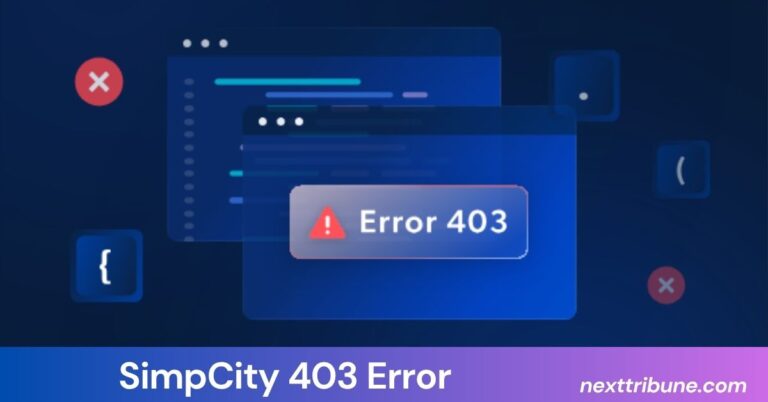
In 2025, Brincks Decorahnews.com check forgery has become a serious financial threat. Fraudsters are using both traditional and digital methods to alter, duplicate, or fabricate checks associated with this well-known news organization. The result? Financial losses, reputational harm, and even legal battles for individuals and businesses. This updated guide explains what check forgery is, how it works, and most importantly, how you can protect yourself.
What Is Brincks Decorahnews.com Check Forgery?
Defining Check Forgery
Brincks Decorahnews.com check forgery is the illegal act of altering, copying, or creating counterfeit checks linked to Brincks Decorahnews.com. Criminals usually aim to steal money by:
- Changing details (payee’s name, check amount, or account number)
- Duplicating genuine checks with advanced printing or scanning tools
- Forging signatures of authorized issuers
Because Brincks Decorahnews.com handles a large volume of financial transactions, it is a prime target for fraudsters.

Common Methods of Check Forgery in 2025
- Physical Alterations – Changing names, dates, or amounts on a genuine check.
- Counterfeit Printing – Producing fake checks that look identical to real ones.
- Digital Replication – Using software to create electronic forgeries that are harder to detect.
As technology advances, criminals continue to develop more sophisticated fraud techniques, making awareness and vigilance essential.
Also Read: Budget Hacks CWBiancaMarket: Your Ultimate Guide to Smart Shopping in 2025
The Impact of Brincks Decorahnews.com Check Forgery
Financial Losses
- Stolen funds withdrawn before detection
- Bank fees and penalties for bounced or fraudulent checks
- Cost of recovery in terms of time, legal fees, and stress
Reputational Damage
- Loss of trust among customers and partners
- Negative media coverage and social media backlash
- Strained business relationships
Legal Consequences
Check forgery is a serious criminal offense. Victims may be held liable if they fail to take reasonable precautions. Businesses must show they use robust security measures or risk additional legal exposure.
How to Detect Brincks Decorahnews.com Check Forgery
Look out for these red flags:
- Inconsistent design, missing watermarks, or unusual fonts
- Erasures, white-out marks, or tampered fields
- Signatures that don’t match previous checks
- Suspicious routing or bank account details
- Unexpected or unusually large payment amounts
How to Protect Yourself from Check Forgery
Also Read: Janell Kochevar with Element 3: Revolutionizing Marketing with Data and Creativity
- Verify checks before depositing – Call the issuing bank if unsure.
- Use anti-forgery technology – Watermarked paper, encrypted check systems, and bank verification tools.
- Monitor your bank accounts regularly – Detect fraud early by checking transactions weekly.
- Train employees and partners – Teach staff to spot suspicious checks.
- Secure sensitive information – Lock checkbooks, shred old documents, and avoid sharing financial data over insecure channels.
What To Do If You’re a Victim
Becoming a victim of check forgery can feel overwhelming, but taking immediate and structured action can minimize your losses and protect your legal rights.
1. Contact Your Bank Immediately
- Call your bank as soon as you detect suspicious activity.
- Ask them to freeze the affected account and stop payment on any forged checks.
- Request written confirmation of your fraud report for future legal use.
2. File a Police Report
- Visit your local police department and provide copies of the forged check(s).
- A formal police report creates a legal record, which helps in investigations and insurance claims.
- Keep a copy of the report for your personal and business records.
3. Notify Brincks Decorahnews.com
- Inform the organization if their name or checks were misused.
- This helps them improve internal security and possibly assist you in tracking the forgery.
4. Place a Fraud Alert and Monitor Credit
- Contact credit bureaus (Experian, Equifax, TransUnion) and place a fraud alert on your credit file.
- This makes it harder for criminals to open new accounts in your name.
- Regularly review your credit report for unusual activity.
5. Gather Documentation
- Save copies of forged checks, bank statements, emails, and any communication with the bank or police.
- Detailed records strengthen your case if you need to pursue legal action or insurance claims.
Legal and Financial Protections Against Check Forgery
Victims of Brincks Decorahnews.com check forgery aren’t helpless—several laws, banking policies, and financial tools exist to protect individuals and businesses. Knowing your rights can speed up recovery and limit losses.
1. Federal Laws and Regulations
- Check Clearing for the 21st Century Act (Check 21):
This law allows banks to process checks electronically, making it harder for counterfeit checks to slip through. It speeds up detection and reduces fraud risks. - Uniform Commercial Code (UCC):
Provides legal rules for handling negotiable instruments like checks. Under UCC, banks are required to reimburse customers if they process unauthorized or fraudulent checks—provided the victim reports in a timely manner. - Identity Theft and Assumption Deterrence Act:
Offers protection for victims of identity theft connected to check forgery, giving them federal backing when fraud extends to credit misuse.
2. Bank Liability and Customer Rights
- Most banks offer Zero Liability Policies if you report forgery promptly.
- Customers typically have 30–60 days after receiving their statement to dispute fraudulent checks. Beyond that window, liability may shift to the customer.
- Banks may also reimburse stolen funds if the victim shows they took reasonable precautions (e.g., securing checkbooks).
3. Business Insurance Options
- Commercial Crime Insurance: Covers losses from forgery, counterfeiting, and fraud.
- Fidelity Bonds: Protect businesses against employee fraud, including forged company checks.
- Errors & Omissions (E&O) Insurance: May cover liability if a client or partner suffers loss due to your company’s negligence in preventing fraud.
4. Credit Bureau Protections
- Victims can place a fraud alert or a credit freeze with credit reporting agencies.
- Fraud alerts last for one year (renewable) and warn lenders to verify your identity before issuing credit.
- A credit freeze blocks new credit accounts until you lift it—ideal if you suspect identity theft linked to forged checks.
5. Legal Recourse Against Forgers
- Victims can pursue civil lawsuits for damages caused by forged checks.
- Criminal charges against the fraudster may include forgery, fraud, and identity theft, leading to fines and imprisonment.
- Courts may order restitution, requiring offenders to repay stolen funds.
6. Preventive Financial Tools
- Positive Pay Systems: Offered by banks, these match issued check records with presented checks to spot discrepancies.
- Watermarked or Holographic Checks: Make forgery more difficult.
- Digital Payment Alternatives: Transitioning to ACH transfers, wire payments, or digital wallets reduces the risks tied to paper checks.
Also Read: Sparkspitter Candle: A Complete Guide to the Most Fascinating Decorative Candle
FAQs About Brincks Decorahnews.com Check Forgery
Why is Brincks Decorahnews.com a target for check forgery?
Because it handles frequent financial transactions with suppliers, employees, and partners, making it attractive to fraudsters looking for loopholes.
How common is check forgery in 2025?
Cases are rising globally as criminals use advanced digital tools, making forged checks harder to detect without strong verification systems.
Can individuals be held liable for accepting forged checks?
Yes, if you fail to take reasonable precautions, you may bear financial responsibility—even if you accepted the check unknowingly.
What technology helps detect forged checks?
Banks now use digital watermarking, encrypted check systems, and AI-based fraud detection to catch inconsistencies quickly.
What should businesses do to protect against check forgery?
They should train employees, secure checkbooks, use anti-forgery software, and regularly monitor account activity for unusual transactions.
How quickly should I act if I spot a forged check?
Immediately report it to your bank and police—delayed action reduces recovery chances and increases financial loss.
Does insurance cover losses from check forgery?
Yes, many business insurance policies include fraud protection, but coverage depends on your provider and how quickly you report the incident.
Conclusion
Brincks Decorahnews.com check forgery is more than just a financial inconvenience—it’s a crime that can damage reputations, disrupt businesses, and cause lasting stress for victims. In today’s digital era, fraudsters are using increasingly sophisticated methods, but the good news is that effective protections exist. By understanding how check forgery works, watching for red flags, and taking proactive steps such as verifying checks, using bank security tools, and monitoring accounts, individuals and organizations can stay one step ahead. Remember, quick action is critical—report suspicious activity immediately, safeguard sensitive information, and lean on the legal and financial protections available. With awareness and vigilance, you can reduce risks and protect both your money and your peace of mind.



